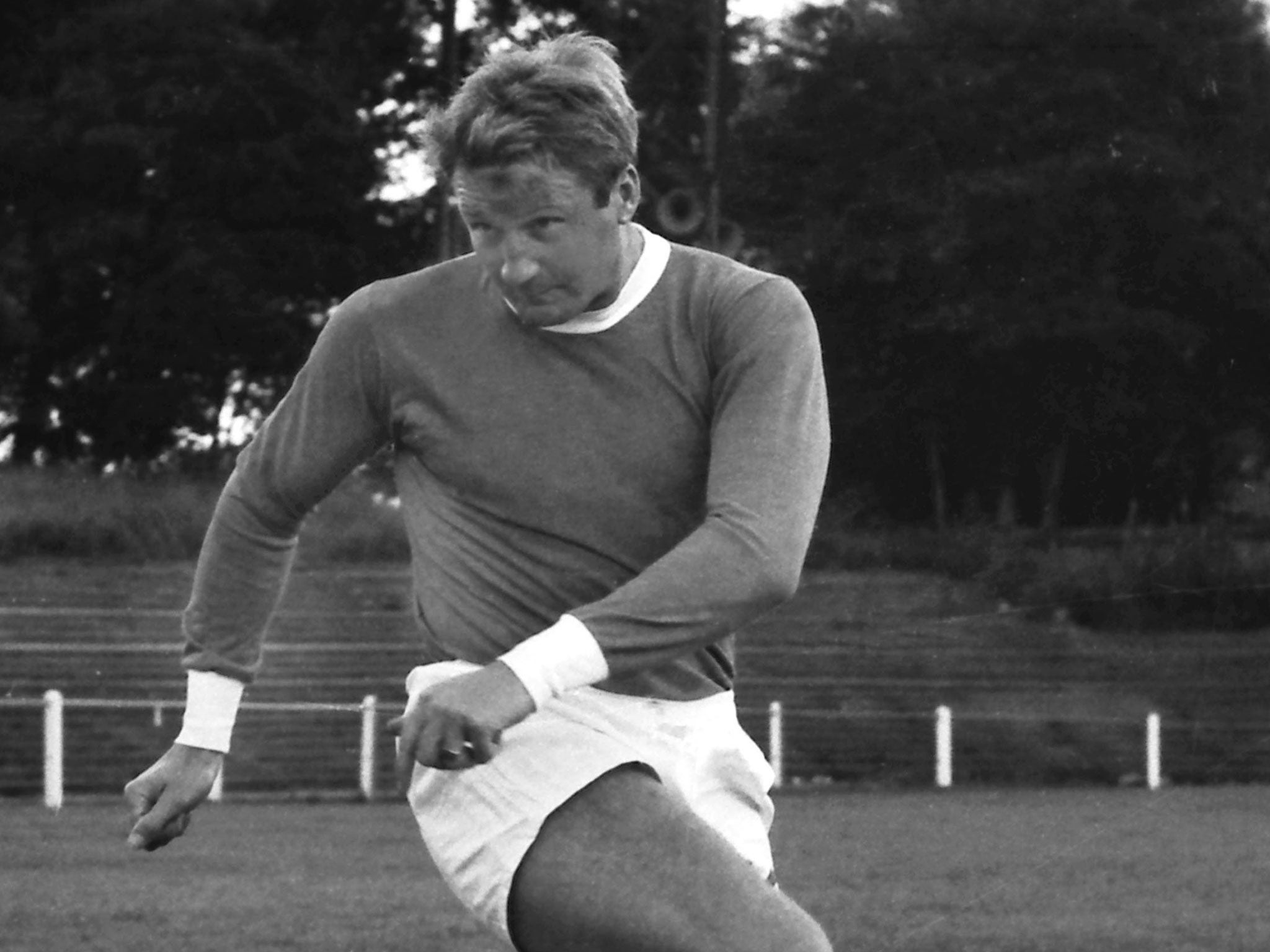
Your support helps us to tell the story
From reproductive rights to climate change to Big Tech, The Independent is on the ground when the story is developing. Whether it's investigating the financials of Elon Musk's pro-Trump PAC or producing our latest documentary, 'The A Word', which shines a light on the American women fighting for reproductive rights, we know how important it is to parse out the facts from the messaging.
At such a critical moment in US history, we need reporters on the ground. Your donation allows us to keep sending journalists to speak to both sides of the story.
The Independent is trusted by Americans across the entire political spectrum. And unlike many other quality news outlets, we choose not to lock Americans out of our reporting and analysis with paywalls. We believe quality journalism should be available to everyone, paid for by those who can afford it.
Your support makes all the difference.Reg Jenkins is the most revered footballer in the century-long history of Rochdale, the little Lancashire club which has never risen above the third tier of the domestic game, but which has performed miracles to survive for so long in the shadow of the Manchester giants.
The big, genial Cornishman was voted Dale's greatest ever player by 69 per cent of their fans in a 2004 poll. He remains their record scorer 40 years after his retirement, and he starred in the first of the two promotion campaigns they have known, when they rose from the basement division in 1968/69.
More than that – and if some of the stories about him are apocryphal, then no matter, it's the spirit in which "Sir Reg of Rochdale" is recalled that truly counts – long-time admirers have him shooting with such power that on one occasion he burst the net, and on another had the terrified 'keeper diving to avoid, rather than intercept, the speeding leather.
Jenkins began his professional career with Plymouth Argyle, whom he joined from non-League Truro City in October 1957. He made his debut in 1958/59, which the Pilgrims finished as champions of Division Three, and although he didn't make enough appearances to qualify for a medal, the muscular, hard-running centre-forward did register his first League goal.
It was against Chesterfield and in later years he loved to recall, with characteristic modesty, the identity of the man who picked the ball out of the Spireites' net – it was Gordon Banks, destined for World Cup glory with England in 1966 and one of the finest goalkeepers of all time.
However, Jenkins didn't tarry long at Home Park, dropping two divisions to join Exeter City in December 1960. He didn't settle at St James's Park, either, stepping back up a level to enlist with Third Division Torquay United during the following summer.
His ten goals in 1961/62 were not enough to avert relegation, and thereafter he remained at Plainmoor for two more seasons before taking the momentous decision to leave his native West Country for Rochdale – later he joked that he barely knew where it was – in a £3,000 deal in June 1964.
At Spotland, under manager Tony Collins, Jenkins found his true footballing home. He scored twice on his home debut and racked up 25 hits as an ever-present in his first season, then registered steadily over the next three terms as Dale languished in the lower reaches of the Fourth Division, twice having to apply for re-election to the Football League.
The turning point came in 1968/69, after Jenkins had temporarily lost his place under Bob Stokoe, Collins' successor as boss. Stokoe departed in the autumn, and the new manager, Len Richley, restored the Cornishman to the team and paired him with recent signing Tony Buck. The two strikers excelled as a duo, winger Dennis Butler was even more prolific and Rochdale surged up the table to climax the season in third place behind Doncaster Rovers and Halifax Town, which was good enough to win promotion. Jenkins' contribution was 13 goals, including two in the decisive springtime clash with Southend United at Spotland.
In 1969/70 he struck an even richer vein of form, netting 20 times as Dale consolidated at the higher level by finishing in a creditable ninth place. Although by now in his early thirties, Jenkins had never been more effective, cutting an imposing figure, his pulverising shot as potent as ever. But over the next two years he picked up a succession of niggling injuries and in 1973, having scored 119 goals in 305 League appearances for the club, he was given a free transfer.
Oldham Athletic manager Jimmy Frizzell offered Jenkins the chance to stay in the game as his assistant at Boundary Park, and he was tempted to accept. But although he and his family felt at home in his adoptive county – often he relished working on a friend's farm after training – he opted for a return to Cornwall, where he became a lorry driver while helping to run the club in his home village of Millbrook for the next two decades.
Ivan Ponting
Reginald Jenkins, footballer: born Millbrook, Cornwall 7 October 1938; played for Plymouth Argyle 1957-60, Exeter City 1960-61, Torquay United 1961-64, Rochdale 1964-73; died Tenerife 29 January 2013.
Join our commenting forum
Join thought-provoking conversations, follow other Independent readers and see their replies
0Comments